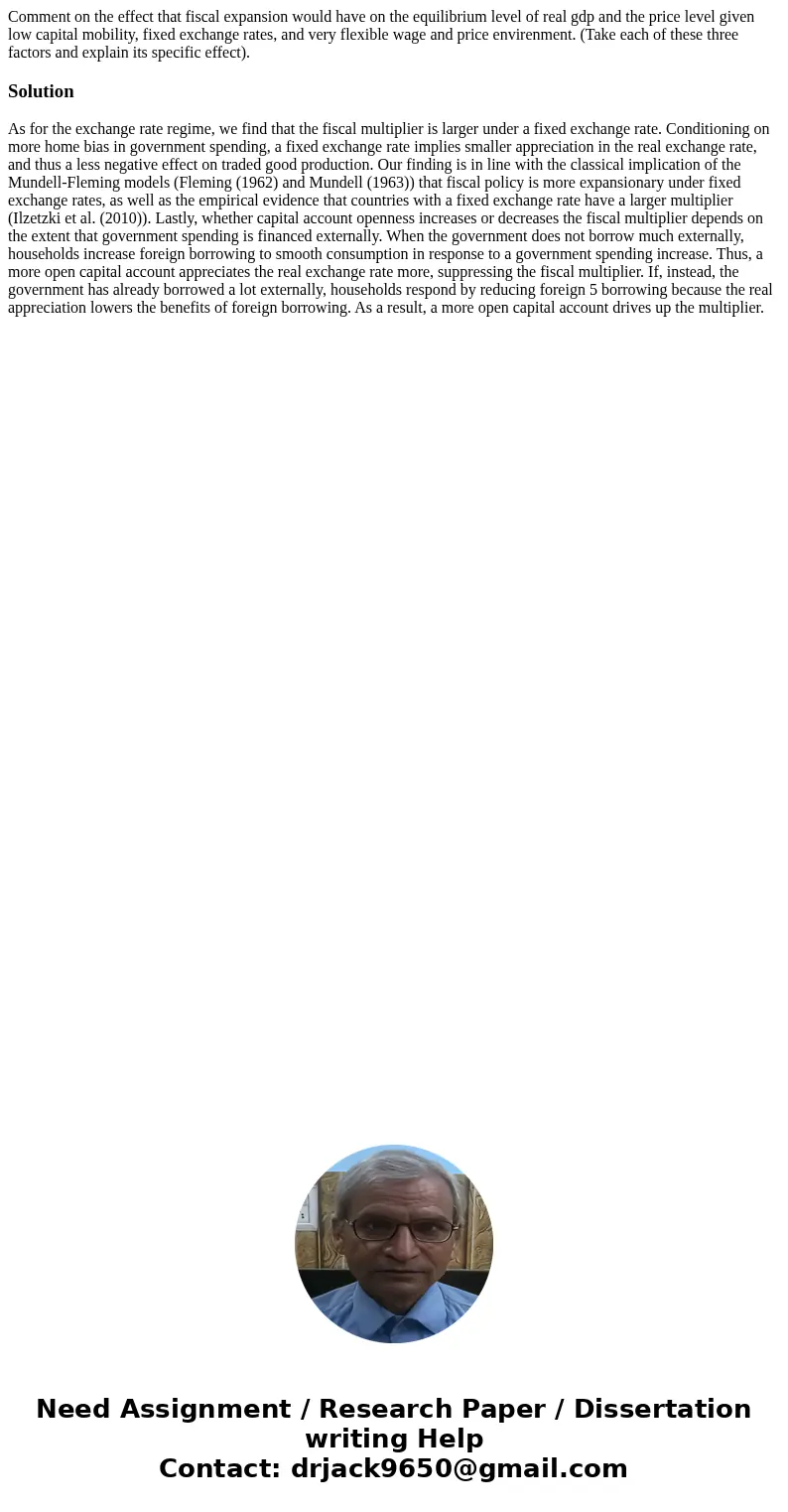Comment on the effect that fiscal expansion would have on th
Comment on the effect that fiscal expansion would have on the equilibrium level of real gdp and the price level given low capital mobility, fixed exchange rates, and very flexible wage and price envirenment. (Take each of these three factors and explain its specific effect).
Solution
As for the exchange rate regime, we find that the fiscal multiplier is larger under a fixed exchange rate. Conditioning on more home bias in government spending, a fixed exchange rate implies smaller appreciation in the real exchange rate, and thus a less negative effect on traded good production. Our finding is in line with the classical implication of the Mundell-Fleming models (Fleming (1962) and Mundell (1963)) that fiscal policy is more expansionary under fixed exchange rates, as well as the empirical evidence that countries with a fixed exchange rate have a larger multiplier (Ilzetzki et al. (2010)). Lastly, whether capital account openness increases or decreases the fiscal multiplier depends on the extent that government spending is financed externally. When the government does not borrow much externally, households increase foreign borrowing to smooth consumption in response to a government spending increase. Thus, a more open capital account appreciates the real exchange rate more, suppressing the fiscal multiplier. If, instead, the government has already borrowed a lot externally, households respond by reducing foreign 5 borrowing because the real appreciation lowers the benefits of foreign borrowing. As a result, a more open capital account drives up the multiplier.

 Homework Sourse
Homework Sourse